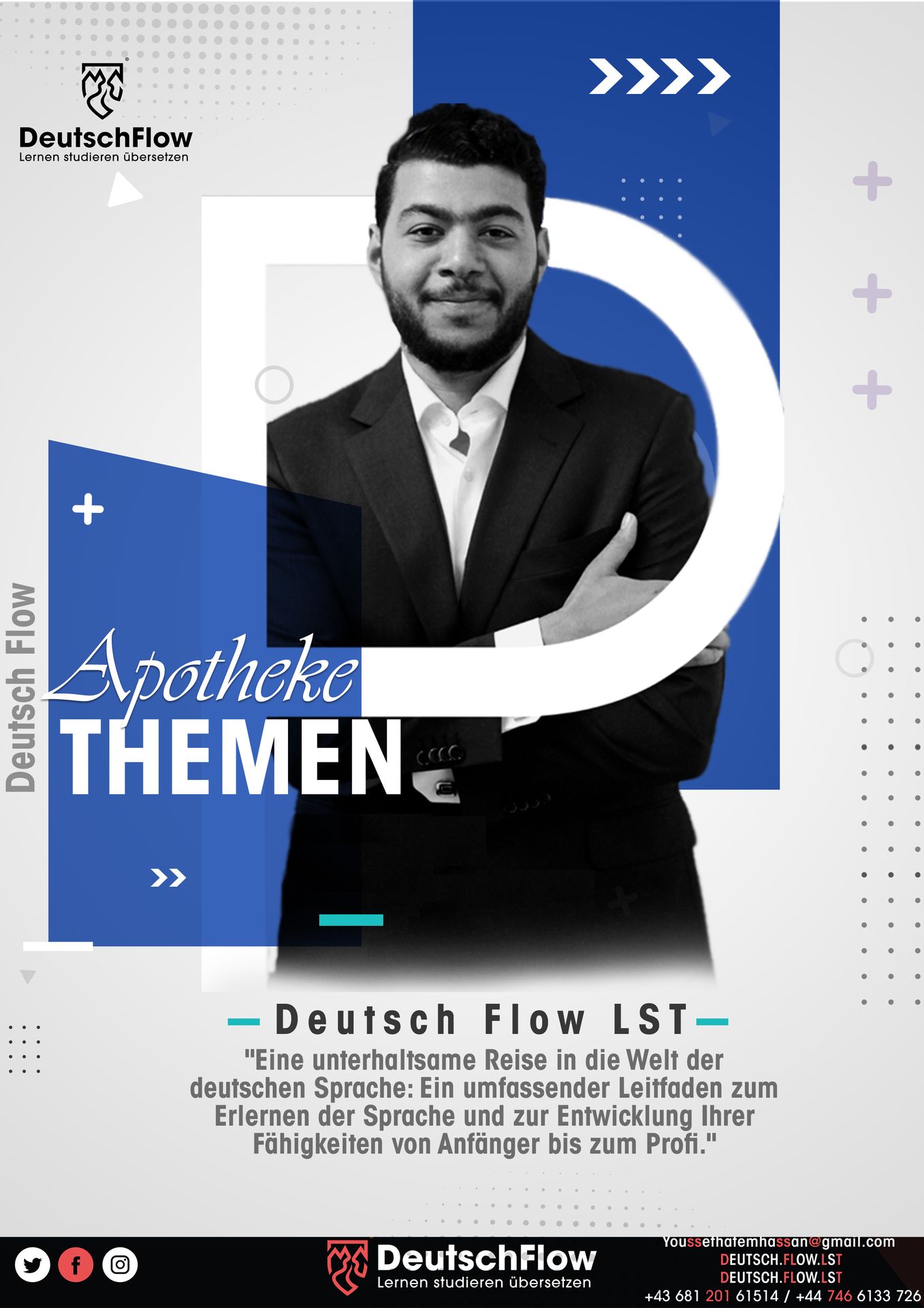German for pharmacists & pharmacies

Ideal preparation for the German specialist language exam for pharmacists
- Online German course B2/C1
- Online German course "Fachsprache Deutsch für Apotheker / Pharmazeuten"
- Sprachpraktikum
- Preparation for the "Fachsprachprüfung für Apotheker / Pharmazeuten"
- Fachsprachprüfung
German exam for pharmacists & pharmacies
Who is responsible for the language test? In some federal states the Chamber of Pharmacists is responsible, in others the state examination offices. In North Rhine-Westphalia, for example, the state examination offices of the district governments are responsible.
When can I register for the specialised language examination? Apply to the relevant state authority for a licence to practise. There are several stages to this process. Firstly, you should have a sufficient knowledge of German (level B2/C1). You normally register for the specialist language examination after you have applied for a licence to practise medicine.
What do I need to study for the exam? The pharmacists' language test consists of three parts: In the first part you will have a simulated conversation with a patient. In the second part you will have a professional discussion with a colleague (pharmacist) and in the third part you will have to prepare a typical pharmaceutical document. Each part lasts 20 minutes. Ideally, the exam will be conducted by a German teacher and a pharmacist with a German licence and several years of professional experience.
How can I prepare for the exam? In order to obtain a licence to practise or a professional permit, you must pass the pharmacists' language examination. Good preparation is therefore important. A good and specialised preparation course 'German for Pharmacists' and a language internship are recommended.
Licensing for pharmacists & pharmacists with a foreign degree
If you want to work as a pharmacist in Germany, you need a licence to practise. You must apply to the relevant state authority - in North Rhine-Westphalia, for example, this is the district government. If all the documents are complete and all the requirements are met, you will be issued with a licence to practise. You can then work as a pharmacist in Germany without any restrictions.
If you have studied pharmacy in Germany, obtaining a licence to practise is a formality once you have successfully completed your studies. The situation is different if you have a foreign degree. If German is not your first language, you will have to pass a language test (at least level B2) and a pharmacist language test. Your degree will also need to be recognised. What you need for recognition in Germany depends on whether you studied in an EU/EEA country or in a third country:
- EU/EEA countries (countries of the European Union and the European Economic Area): Successful completion of pharmaceutical training in another Member State of the European Union or the European Economic Area which meets the minimum requirements of Article 24, Article 44 or Article 34 of Directive 2005/36/EC (conformity of training).
- Third countries (all other countries): Successful completion of pharmaceutical training outside the EU and the EEA which is equivalent to training as a pharmacist in the Federal Republic of Germany.
In accordance with European regulations, qualifications from the European Union and the European Economic Area are recognised without further examination. Training in other European countries is considered equivalent. The same applies, of course, if you already have a licence to practise pharmacy in an EU or EEA country.
Have you studied in a country outside the European Union? If so, the national licensing authority will check the equivalence of your degree. This means that the documents you submit are used to determine whether the content of your degree is comparable to that of a German degree in pharmacy. If this is the case, you will be issued with a temporary professional licence. With this professional licence, you can work as a pharmacist under supervision. The aim of the professional licence is to prepare you for the knowledge test. The knowledge test covers the theory and practice of a German pharmacy degree. In order to obtain a German licence to practise, you must pass the knowledge test.
All pharmacists / pharmacists with a foreign degree must pass the specialist language test - even if they have already passed the knowledge test. The specialist language test is absolutely essential for obtaining a license to practice!
If you are applying for a licence to practise and already have a professional licence, you should inform the authority of this.
Information and forms on licensing, professional permit and specialist language test for pharmacists
- Anerkennung in Deutschland: Informationsseite für die Anerkennung ausländischer Studienabschlüsse
- Bezirksregierung Düsseldorf: Prüfungsbereiche des Landesprüfungsamtes für Medizin, Psychotherapie und Pharmazie
- Bezirksregierung Düsseldorf: Merkblatt für Bewerber mit Abschluss der pharmazeutischen Ausbildung außerhalb der Europäischen Union
- Bezirksregierung Köln: Antragsunterlagen zur Erteilung der Approbation
- Approbation & Berufserlaubnis: Häufig gestellte Fragen (FAQ) – Bezirksregierung Köln
- Kenntnisprüfung für Apotheker: Wichtige Informationen – Bezirksregierung Köln
- Apothekerkammer Nordhrein: Als Apotheker & Pharmazeut in Deutschland arbeiten